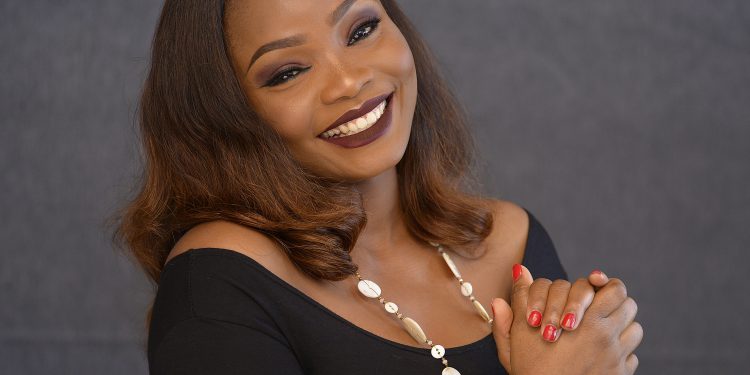Tell us about yourself and your cultural background
I often identify myself as Yoruba but I like to share the rest of my ethnic identity, which is that I am partly Yoruba, partly Hausa/Fulani and also partly Igbo. My Dad is from Ogun state, his parents are from Ogun State. My Maternal Grandfather and Grandmother are from Kebbi and Imo State respectively. So, I think I am better described as multi-ethnic and multilingual. (WAZOBIA). *Smiles
Interesting cultural mix. How come you most identify as Yoruba?
Well, I go by my Yoruba heritage because in this part of the world, your state of origin as an individual is associated with that of your biological father. Sometimes when I tell people I am multi-ethnic; the next question is “where is your father from?” I simply say Ogun state and the comment that follows is “you are Yoruba please”. So, it was always very convenient to simply say I am Yoruba.
Please share how your mixed ethnicity impacted you?
Relationships. Being mixed meant doors of friendship opened up for me. It was easy for me to get to know people before getting too close to them. The most intriguing part of it is when people insult you or say something, they ordinarily will not want you to hear in their language all because they think that you do not understand a language different from yours. I once met a friend (a.k.a toaster) who came across as the best thing after slice bread. On our second date, he got a call and decided to speak in Hausa all through the call, I pretended I could not understand what he was saying meanwhile, the call was about his wedding plans. Thank God I understood that language, I most likely would have been cheated.
It’s one thing to be multi-ethnic, and other to speak all three languages. How did you pull this off?
I was privileged to have lived in different states across the nation. Also, I was ready and happy to do things their way, I was interested in eating their food, learning about them and at every point, I tried to communicate with them in their language as best as I could.
Whilst I was in these states, I lived as an indigene and not as a visitor, this helped me to embrace and appreciate everything about these states. I absorbed pieces and parts of these different cultures, and practically became a cultural sponge. Embracing and appreciating the different cultures made it easy for me to learn their languages.
What lessons have speaking other language taught you about diversity and inclusion?
I believe diversity is synonymous with beauty. I may not have data to prove this but consider intertribal marriage for instance. When a Yoruba man marrying an Igbo woman is always a great combination, a beautiful one. Same goes for inter-tribal business connections.
I also think that when we have people from different tribes in one family, discrimination will become difficult and eventually eradicated.
How has your interest in languages shaped your life?
What I will consider the most interesting thing about learning and being a part of these cultures is how it has sharpened my perspective of life. I never look at issues with prejudice because by default, I see myself on both sides and this helps me to remain objective. I have had an intern resume in an office where I worked, we called each other by our first names which is what she is very familiar with because the tribe she is from they call their parents by their first names. Eventually I got complaints from the CEO of the organisation saying she is very disrespectful, CEO is Yoruba, and I know that to him, calling him by his first name alone is disrespectful let alone saying ‘Hi Babalola’ as opposed to ‘Good morning/afternoon Babalola.’ With an understanding of the two extremely different backgrounds of these two people, I was able to talk to each party appropriately, I counselled the intern and made her understand that calling people by their first names should not take respect away.
This has impacted greatly on one thing that I am very passionate about, Human Resources Management. I have the capacity to understand and share the feelings of others and this makes me always commit myself to building relationships in my workplace, at every level based on trust, respect and empathy.
What does ‘One Nigeria’ mean to you?
It means wherever I am in Nigeria, I am at home. A Nigeria where our ethnic diversity means strength. I’m glad the fear of domination and indigenization crises has significantly reduced over the years, but we need to do more. Less emphasis on “State of Origin” except where necessary. We should be able to identify with wherever we choose to be established within Nigeria, for example the Chairman of Heirs Holdings, Mr. Tony Elumelu is more of a “Lagosian” than some indigenes of Lagos State. The practice of identifying with “Place of Birth” in the Western world has promoted unity in diversity.
What unique things have you experienced from the other two languages?
The Hausa language is the easiest to learn, both for speaking and writing. It is also a language that attracts kindness. What a Hausa trader bought for N10, he will probably sell for a little margin to you if you converse with him in Hausa, he does not need you to be from his ethnic group, just knowing that you can speak his language does it for him. In Igbo language, a word can mean two, three or four different things, same spelling but different tones. For instance; Agu means lion, it also means ‘starve’, Akwa can mean cloth, weeping, or egg, Ara means breast and it also means madness, depending on the tone used.
Some people argue that Nigerian indigenous languages are dying. Do you agree and why?
Yes, I agree. There is more emphasis on learning international languages because of globalization but charity they say begins at home. I have a friend who speaks a bit of French and recently started exportation of shea butter. Majority of his workers are from Abaji, an area council in the Federal Capital Territory in Nigeria and they speak Egbira and Hausa. Every time I engage him to find out how the business is doing; his complaint is always about communication. Imagine if he understood at least one of those two languages, it would have made life easier for him.
What is your advice for achieving a more integrated Nigeria?
The government of the Federal Republic of Nigeria has, at different times implemented initiatives geared towards a more integrated Nigeria – the creation of Unity Schools (I attended one), National Youth Service Corps (NYSC) and the likes. In my view, building more enduring institutions that are stronger than people and will outlive every leadership is a key thing to consider. But more importantly, the private sector needs to eradicate Nepotism completely, give the job to the best person and not the person from your hometown. A new movement calling on the private sector to promote integration just as we have AFRICAPIALISM which is an economic philosophy that embodies the private sector’s commitment to the economic transformation in Africa through investments that generate both economic prosperity and social wealth.
Any language learning tips for our colleagues in the Group?
First, be open to learning the language(s), then use whatever you have learnt in conversations especially with people from that ethnic group. If all you can say is ‘good morning’, say it as often as you can. Seeing yourself as part of these other cultures will also help.





This woman truly personifies what all Nigerians should aspire to be. Her multi-ethnic background obviously contributes to her striking beauty. Nigeria can truly be beautiful if we all work together.
Absolutely! Our diversity and cultural plurality are what makes us such a vibrant people.
Now I know where you got all these amazing features put together and named beauty!!!
I love you more now.
My ears, pen and paper are all ready to learn few languages from you.